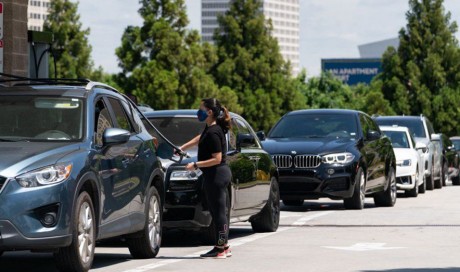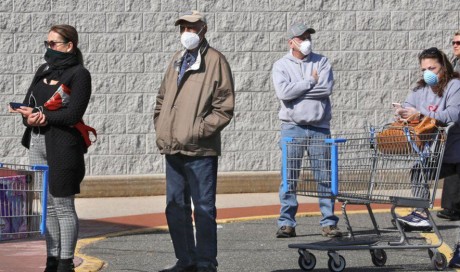Total annualized expenditure on gasoline has already risen by about $157 billion a year over the past 30 months.
Every extra dollar on the price of a barrel of crude costs U.S. consumers roughly $3 billion a year, assuming refining margins and fuel taxes remain constant, and ignoring gasoline consumption by businesses and the like.
Rising gasoline prices have a similar impact to a personal tax increase and have already countered much of the benefit from individual income tax cuts passed at the end of 2017.
If the impact on consumer finances still seems small, a better way to understand the effect is to put the price impact on the same basis as the announced tax cuts.
U.S. budget analysts generally look at the impact of tax changes over a ten-year period (“Estimated budget effects of the conference agreement for HR 1”, Joint Committee on Taxation, Dec. 18, 2017).
The tax cuts approved at the end of 2017 were estimated to reduce individual income taxes by a little more than $1.1 trillion over ten years.
By comparison, the rise in oil prices since the start of 2016 is the equivalent of a tax increase of almost $1.6 trillion over the next decade.
POLITICAL CALCULATIONS
The net impact of higher oil prices on the economy as a whole is obviously smaller because much of the extra revenue will be received by domestic oil producers.
But producers and consumers are not the same, and the redistribution of income has real economic and political consequences. For many households, the gains from cuts passed last year have been offset by the rise in oil prices since 2016.
While tax cuts went mostly to individuals in the upper income ranges, the burden of higher gasoline prices will be felt mostly by individuals on lower incomes because they spend a higher proportion of their earnings on fuel. (“Distribution effects of the conference agreement for HR 1”, JCT, Dec. 18, 2017).
With critical elections ahead, the president has to be sensitive to the financial impact of higher fuel prices on swing voters, which is why he is pressing OPEC and Saudi Arabia to boost output enough to lower them.
Share This Post














